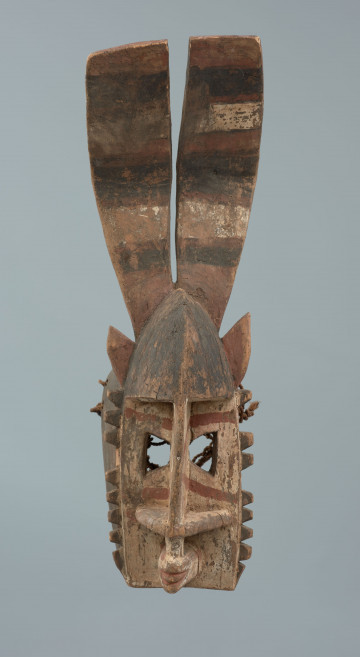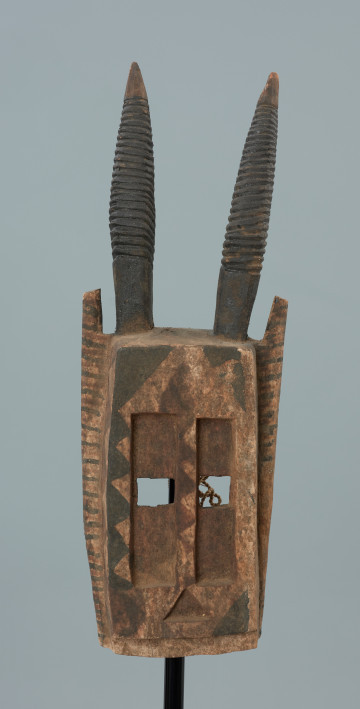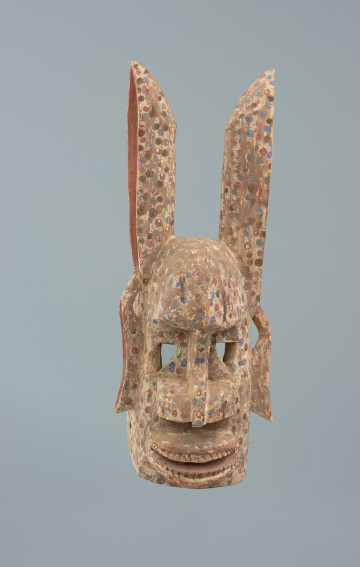
Gomintogo mask
między 1951 — 2000
National Museum in Szczecin
Part of the collection: Collection of Dogonian art
Dogon masks dance during Dama funeral rituals to carry the life energy of the dead (nyama) to its final resting place, the ancestral ranks. Traditionally, Dama is preceded by a series of rituals focused on creating new masks, repairing and painting old ones, preparing and dyeing fibres. The work is mainly done by members of the Awa association. On the first day of the Dama festival, offerings are made to the imina na mask. Then Mulono in the secret Sigi-so language recites a long prayer and calls upon supernatural forces to protect the dancers from various malevolent spirits. The dancers leave the place commonly referred to as the shelter where the masks are kept and walk through the village, performing many rituals unrelated to the dance along the way. Finally, they arrive at the main square and dance to the accompaniment of drums. On the second day called gondenu, the masked dancers visit the house of the deceased just before sunrise and dance on the terrace. After the dance they return to the hut, where they take off their masks and costumes and go to the village square where they drink sadi made of fermented fruit of the sa tree (Lannea acida) together with the old people. In the afternoon, the masks come out again and dance in the square and on the terrace of the house of the deceased. On the third day the masked dancers gather in Hogon's field. There they dance around a hoe used by the deceased and a clay vessel with konyo beer provided by his family. The next day the hoe and the vessel are destroyed in the bush, signifying that the deceased will no longer cultivate the land or drink the beer. In the morning and afternoon of the fourth and fifth day, the masks dance once again in the village square. On the sixth day they appear in the main square, then proceed to the place where the market is held, after which they depart in the direction of the shelter, and the Dama festival is considered over.
Ewa Prądzyńska
Author / creator
Dimensions
cały obiekt: height: 36,2 cm, width: 17 cm
Object type
sculpture, mask
Creation time / dating
Creation / finding place
Identification number
Location / status

między 1951 — 2000
National Museum in Szczecin

między 1976 — 2000
National Museum in Szczecin

między 1951 — 2000
National Museum in Szczecin
DISCOVER this TOPIC
National Museum in Szczecin
DISCOVER this PATH
Educational path